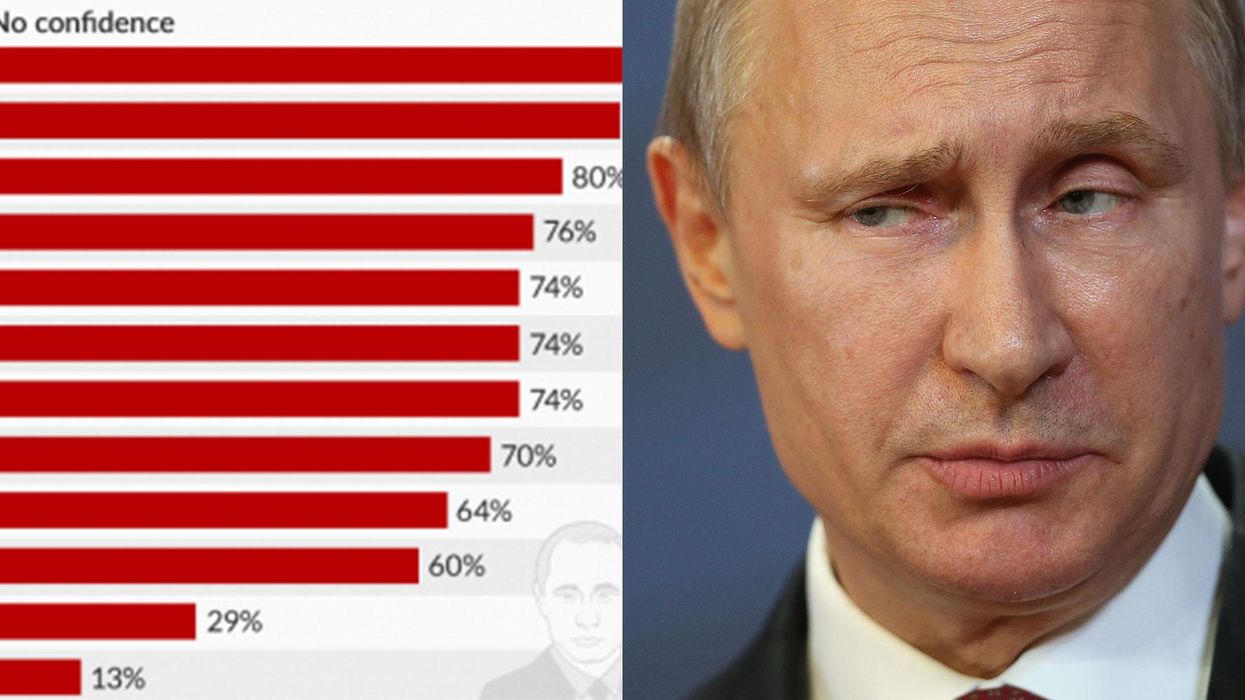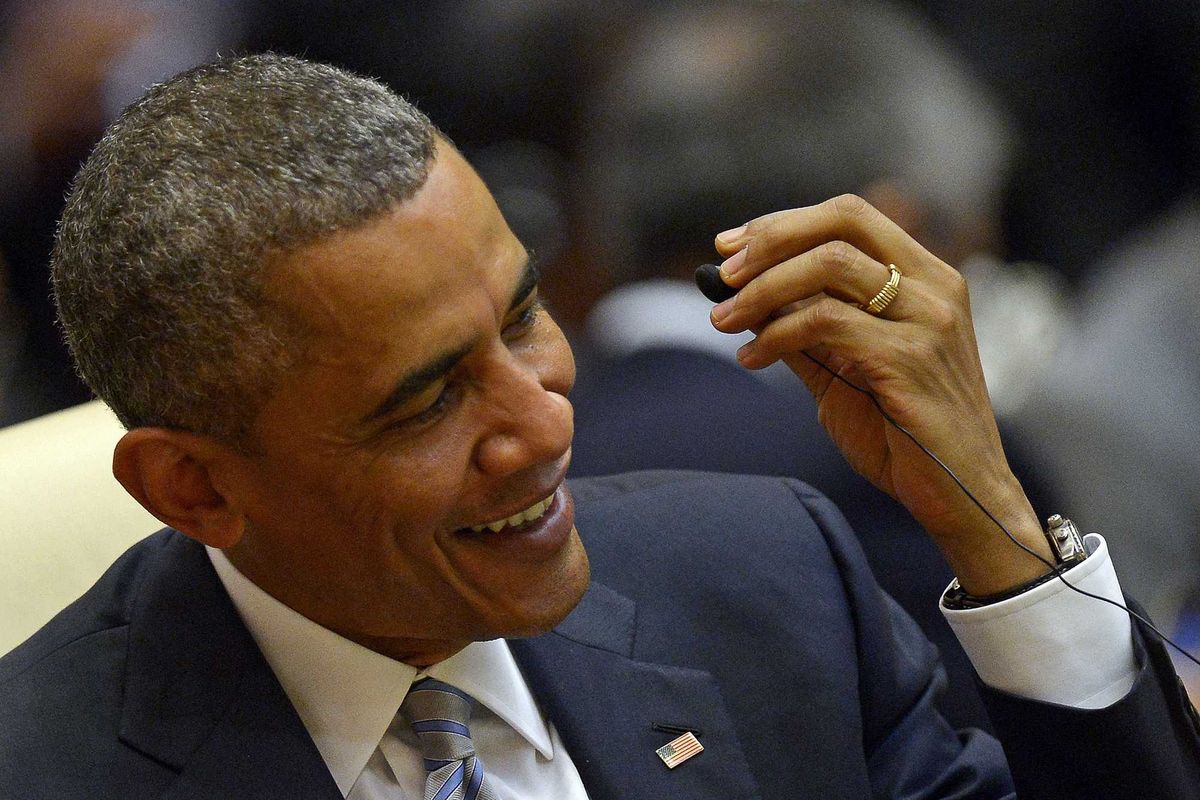News
Greg Evans
Mar 16, 2018
The citizens of Russia go to the polls on Sunday 18 March in the first round of voting to determine who they want to lead their country.
Incumbent President Vladimir Putin is seeking his fourth term in office overall and is strongly predicted to win, according to opinion polls.
There are eight candidates for the public to choose from who – besides Putin – are Kseniya Sobchak, Pavel Grudinin, Vladimir Zhirinovsky, Sergey Baburin, Grigory Yavlinksy, Boris Titov and Maxim Suraykin.
Putin has been the Russian President since May 2012 and previously held the position from May 2000 to 2008. At the time of writing, he has been in charge of the country for a staggering 6,788 days.
This would make him the second longest-serving Russian leader since Josef Stalin and puts him marginally ahead of Leonid Brezhnev.
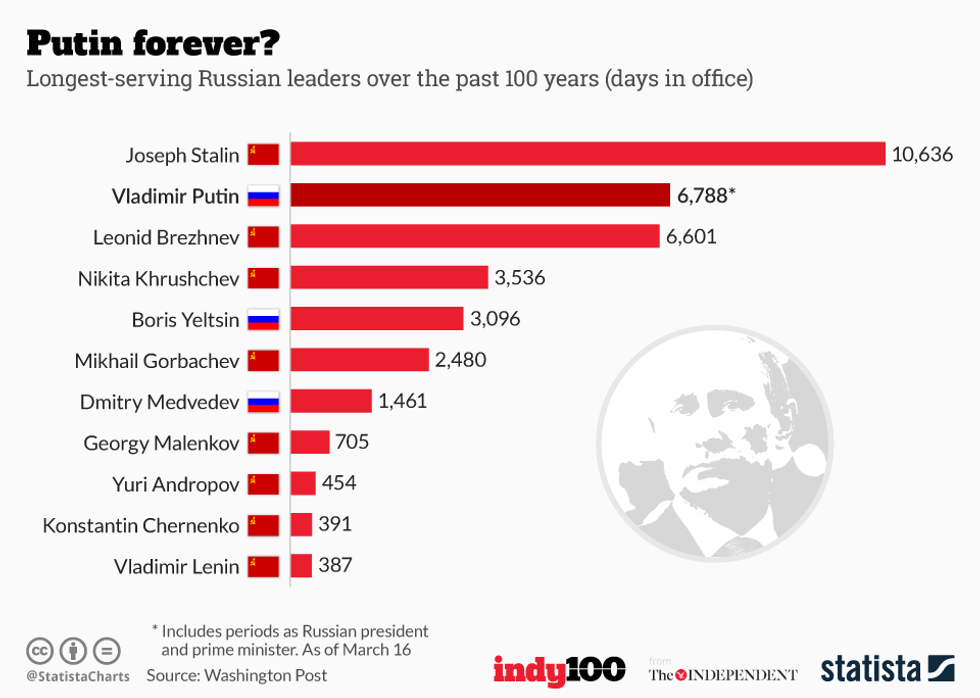
Despite his longevity as a head of state, there still remains a large amount of scepticism about Putin and the elections within Russia.
With stories continuously circulating about Russian hackers, bots and how Putin supposedly chooses to deal with his enemies, there seems to be a lingering about of doubt from the Russian public about the election's legitimacy.
Data compiled by Statista and Gallup showed that as of August 2017 only 40 per cent of the Russian public had confidence in the elections, which is roughly four in ten people from the nation.
This is actually an improvement on the previous five years. In 2012 and 2013 confidence was at a low of just 23 per cent.
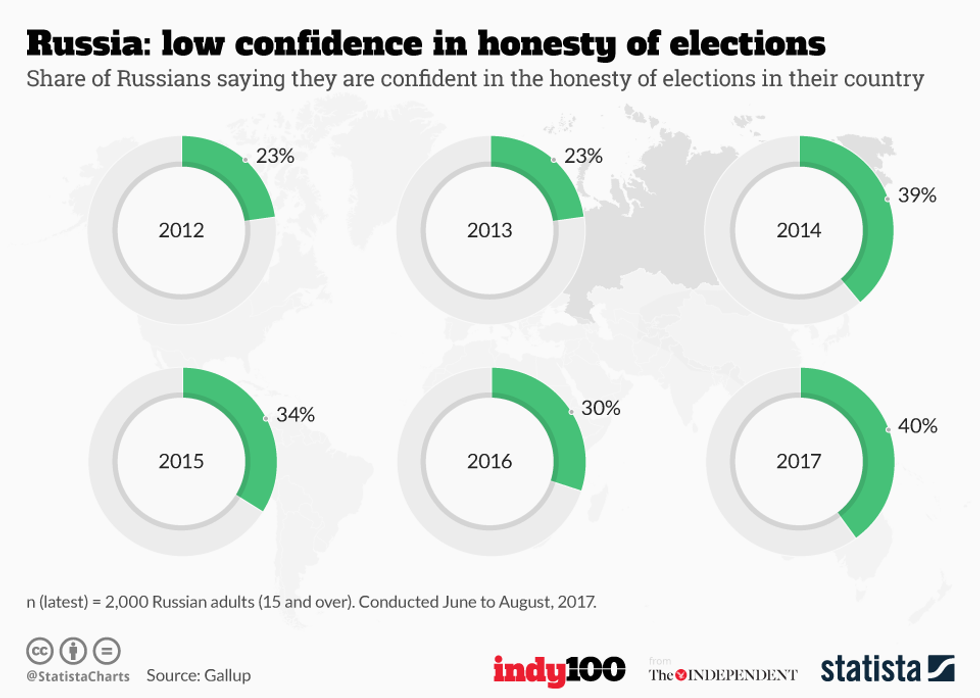
At this point, it is worth bearing in mind the events of recent days.
On March 4, Sergei Skripai, a Russian double agent was found poisoned, along with his daughter Yulia, in Salisbury. Both, along with a police officer remain critically ill in hospital.
British political figures such as Prime Minister Theresa May have said that it is "highly likely" that the Russian government were responsible for the incident.
Therefore the following graphic may have dramatically altered if it had been conducted in the past 12 days. That being said, as of August 2017, 76 per cent of Brits felt that Putin was not doing the right thing when it came to world affairs.
Poland was found to be the country that had the lowest confidence in Putin. In contrast, it was Nigeria who had the highest confidence in the Russian President, totalling at 33 per cent.
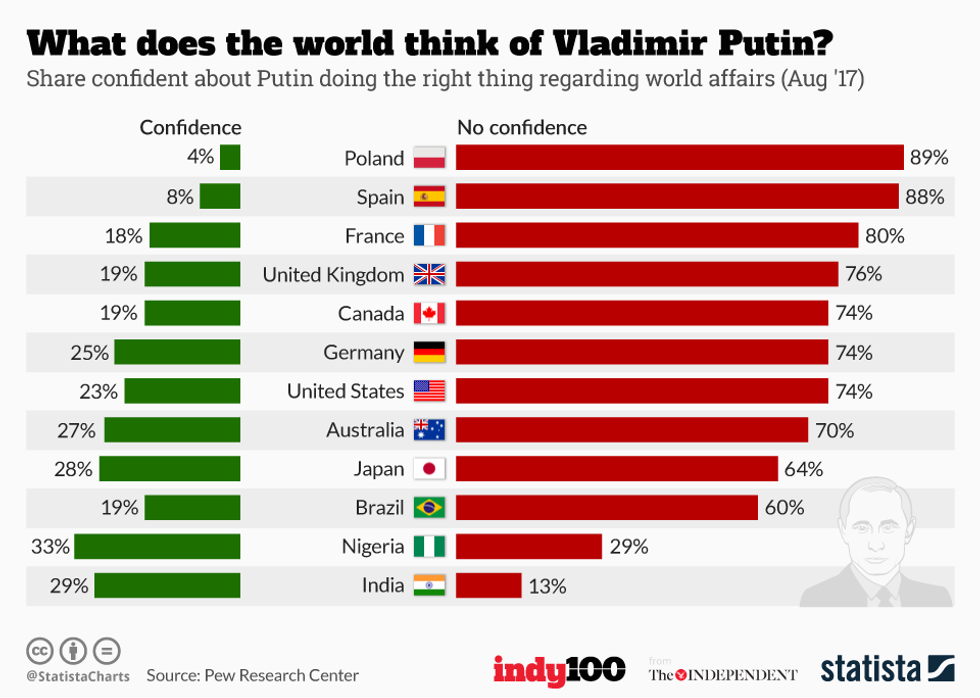
The first round of voting in the election will take place on Sunday with the second round due to take place three weeks later, on 8 April.
The next Russian election isn't set to take place until 2024.
More: 7 times Russian government Twitter accounts trolled people on the internet
Top 100
The Conversation (0)
